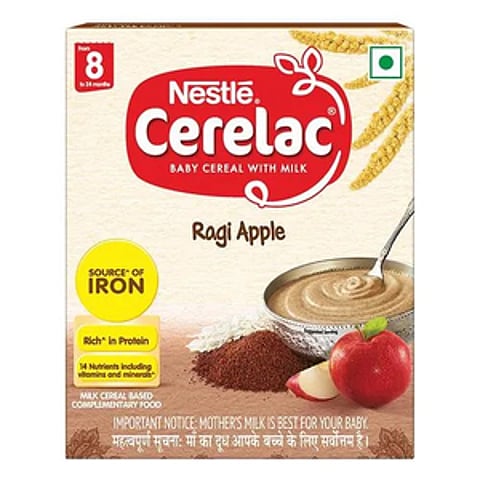

Nestle India Chairman and Managing Director (MD) Suresh Narayanan has rejected the allegation of racial distinction in the formulation of its products. The MD said the allegation that its products are racially stereotyped is unfortunate and untrue.
Narayanan was speaking to the media on the issue of high added sugar content in complementary baby food product Cerelac.
“Every formulation of the company -- especially a formulation for children below 18 months -- is done on a global basis. There is no local approach to making a nutritional adequacy study, it is done globally,” said the Nestle MD reiterating that there is no distinction between a child in Europe and a child in India or any other part of the world.
He said globally recipes are formulated for needs of growing children based on 3-4 parameters – the carbohydrates and energy content is anywhere between 50 and 70%, proteins is about 15%, fat, which translates into energy of between 20 and 30%, and then there are vitamins, mineral supplements and all other elements that go to nourish a grown child.
He said this is done globally, though this gets translated into a product locally depending on different considerations -- local regulatory requirements, local availability of raw materials and habits as far as feeding is concerned.
Narayanan said that Nestle follows a mix of local and Codex guidelines as far as sugar content is concerned. He said that FSSAI allows 13.6 gm added sugar per 100 gm of feed, while Nestle products have an added sugar level of 7.1 gm. He further said the company has reduced the sugar content in its products by 30% in the last five years.
On the overall sugar content in its food products, Narayanan said majority of the sugars come naturally from milk or cereals. As far as the added sugar is concerned, he said this is either table sugar or sugar from cereals which are added in order to make a consistent feed "because the child not only must get used to the energy requirement or the energy density requirement of the feed, but should also learn to improve his or her motor skills in terms of appreciating different tastes and different textures."
Reiterating the point of no racial distinction in its products, the Nestle India MD said even in Europe, the company has products with added sugar. He named Poland and Czech Republic in Eastern Europe, where its products have added sugar.
On the regulatory action, Narayanan said the Food Safety and Standards Authority of India (FSSAI) has indicated that it will be taking samples from its factories. However, he reiterated that FSSAI will take samples from all infant formula and cereal manufacturers.
“So, an industry wide sampling will be done and then they will do tests,” he said. However, Narayanan said that added sugar cannot be distinguished from total sugar.
On the impact the latest controversy had on sales, the MD said they have not seen any significant change in sales so far.